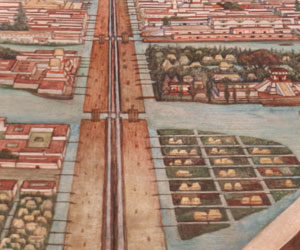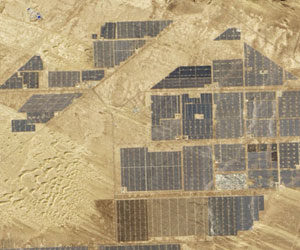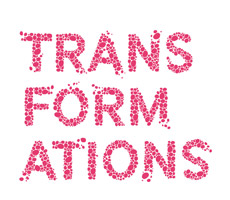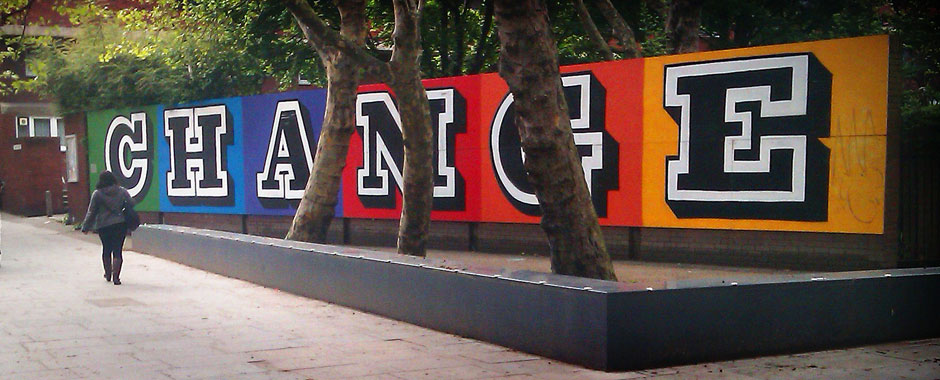This post introduces a series of blog posts on ‘Transformations’, our theme for 2018.
Transformation is one of those buzz words that’s everywhere these days, especially in relation to the big issues of our time such as sustainability. But what does it mean, and how do we go about it?
Over the last year or so the STEPS Centre has been puzzling over these questions. Our pathways approach means not just any kind of transformation, however well-intentioned, will do. We must ask about transformations to what and for whom, with what consequences for the environment and social justice.
Over the coming year (2018), we’ll be building on these lessons as ‘Transformations’ becomes our theme for the year (read more about our plans for the next 4 years).
What kind of transformation?
Some transformations may emerge from often unruly mobilisations and caring practices to generate emancipatory change. Others are as a result of top-down actions, leading to more repressive, controlling outcomes. This matters. Transformations – just like sustainability itself – are not neutral: there are winners and losers, and very different pathways.
In our work, we have asked one overarching question: what does it take to make sustainability transformations emancipatory (caring), rather than repressive (controlling)? Together with our partners in the STEPS Global Consortium, we studied a whole array of settings and issues – from mangrove conservation in India and Kenya, to open knowledge innovation in Argentina, to low carbon energy transitions in Kenya and China to mobilisations for urban sustainability in India to Green Revolution policies in India and Kenya.
When STEPS Centre members met as a group, we analysed the findings together, trying to draw out the key themes. Further questions arose around the intersecting conditions of structure, agency and practice in generating caring transformative pathways; around the importance of political economies, histories and cultures in conditioning change and creating mobilisation opportunities for more progressive alternatives; and around processes of learning and knowledge generation that enable emancipatory change amongst diverse groups. And much, much more.
Our last retreat was at Tilton House in the shadow of the South Downs, where John Maynard Keynes wrote the General Theory. Our intention though was not to come up with an all-encompassing theory of transformations; more to think across our empirical cases, and in relation to our wider questions. The four blogposts launched today are the result.
1. The politics of ‘co-producing’ transformative knowledge
 The first blogpost focuses on the challenges of transdisciplinary enquiry and the politics of co-production. Two contrasting understandings of co-production are highlighted: one simply where different people get involved in producing knowledge, and the other which points out that such processes always produce both new knowledge and social orders, and are profoundly political.
The first blogpost focuses on the challenges of transdisciplinary enquiry and the politics of co-production. Two contrasting understandings of co-production are highlighted: one simply where different people get involved in producing knowledge, and the other which points out that such processes always produce both new knowledge and social orders, and are profoundly political.
This latter understanding has been at the centre of the STEPS pathways approach from the beginning, and suggests a more political approach to understanding and practising transformations.
This has practical implications, as our work in urban India shows vividly. Relationships matter: the social, cultural and political dimensions of knowledge production are crucial, and such relationships take time to build. And, as these change, both knowledge and social and political orders shift too. Depending on the configurations, this can result in emancipatory or controlling transformations. As our Pathways Network across the Consortium has shown, such processes of convening are essential.
As the blog argues, “producing effective knowledge for progressive transformation is also crucially about ‘speaking truth about power’”. This means accepting that power and relationships shape what knowledge is produced.
Read the post: How do we ‘co-produce’ transformative knowledge?
2. technology and relationships
The importance of re lationships at the heart of social and technical change is highlighted in the second blogpost.
lationships at the heart of social and technical change is highlighted in the second blogpost.
Technology access is at the heart of much debate about sustainable development. Transformations are assumed to occur through the transfer of new technologies that allow new practices to emerge. Very often these are portrayed as singular, technical, market-driven transitions. This is the ‘silver bullet’ mode of controlling transformations.
Yet, as the blog argues, all socio-technical changes are embedded in relationships and rooted in practices; and it is these that guide which pathway is followed, and who wins and who loses.
Mobile-assisted payment systems for off-grid solar electricity in Africa are a case in point. The relationships built around such interventions influence who can benefit. In different places, the same technologies may have very different results because of the implications for class, gender and other social relationships.
Thinking about transformations as relationship-building requires a change of approach to technology assess to focus more on questions of agency, autonomy, power and solidarity; all themes raised by the open science and technology movement. Caring, emancipatory transformations for sustainable development need new relational approaches to science, technology development and transfer, as well as value chain and economic development more broadly.
This is a fundamental challenge to standard ways of thinking about the Sustainable Development Goals in terms of the idioms of transfer, access and control.
Read the blogpost: Want to transform access to technology? Follow the invisible threads
3. Mobilising multiple histories
 Mobilising for change requires drawing on individual and collective memories, experiences and knowledges. Histories matter. As our third blogpost argues, “histories can build solidarity, back up claims for rights, evoke strong emotions, or help to understand different people’s points of view.”
Mobilising for change requires drawing on individual and collective memories, experiences and knowledges. Histories matter. As our third blogpost argues, “histories can build solidarity, back up claims for rights, evoke strong emotions, or help to understand different people’s points of view.”
This allows us to tell stories, creating narratives about the directions of change. Visions of transformation – and commitments to emancipation, challenging authoritarianism and creating alternatives – are created this way. Histories uncover technical, economic, social and emotional pasts that can be resources for the future.
In our work, we have listened to pastoralists living with mangroves in Kutch in India, uncovering fascinating life histories and explanations for environmental change. These provide a focus for countering the dominant, repressive transformations that are refashioning lives and livelihoods. In retelling the histories of green revolutions in India and Kenya through a focus on the practices of farmers – around markets and technologies – a different story can be told, showing that there are many paths that have been followed and multiple green revolutions, with different impacts.
Such uncovered histories in turn can be the focus for building solidarities for mobilisations. As our research shows, from pastoral India to urban Mexico, these may be small, hidden resistances; quiet, long-term constructions of alternatives or more robust, noisy confrontations with the mainstream.
New collective histories with new authors can be an important focus for building emancipatory transformations, and the new narratives required for generating alternative pathways. As the dominant, controlling storylines of development – of the (singular) green revolution, of planned urban change, of technology transfer, of environmental management – are challenged, a greater diversity of unruly possibilities open up.
Read the blogpost: Things can change: history and transformations to sustainability
4. States, markets and politics
 Our research has also explored the political economy of transformation, and the structural features of states, markets and their interactions. Sometimes the debate is framed in terms of state or market, but very often it’s both, as state practices are present in markets, and vice versa.
Our research has also explored the political economy of transformation, and the structural features of states, markets and their interactions. Sometimes the debate is framed in terms of state or market, but very often it’s both, as state practices are present in markets, and vice versa.
The fourth blogpost in the series looks at cases from marginal, dryland areas in India and China, and emphasises that states – seen more in terms of actors and practices – look much more fragmented, diffuse and ambiguous when looked at from the bottom up.
Structure and agency continuously intersect through a range of practices. In settings which at first sight seem oppressively controlling, cracks of light emerge, with room for manoeuvre opening up. Whether around top-down conservation projects or massive roll-out of solar technology, pastoralists in both these case study sites are exploring alternatives, negotiating transformations in a hybrid setting.
This has important implications. Bringing a political economy perspective squarely into the pathways approach means taking seriously how networks of power operate across states and markets and how spaces are opened up or closed down for creating new alliances and generating alternatives.
Read the blogpost: Green transformations in India and China: who’s in charge?
As these four blogposts show, our last phase of research did not provide neat conclusions. But it opened up more suggestions for thinking and action, and many new questions. No ‘how to’ manuals for transformation emerged – indeed such closing down would be anathema to our approach.
Instead this rich and exciting process of research and collective reflection has provoked all sorts of new work for the next phase of the STEPS Centre’s work starting in 2018, where ‘transformations’ is our big theme for this coming year. Watch this space for more reflections and insights, and please comment on the blogs, and join the conversation!
 Faced with a series of social and environmental stresses and shocks, there are urgent calls for radical, systemic change. But, as past and present experience show, this can take many forms. What does it take to make sustainability transformations emancipatory (caring), rather than repressive (controlling)?
Faced with a series of social and environmental stresses and shocks, there are urgent calls for radical, systemic change. But, as past and present experience show, this can take many forms. What does it take to make sustainability transformations emancipatory (caring), rather than repressive (controlling)?
Find out more about our theme for 2018 on our Transformations theme page.

This is quite an educative and amazing content. Keep up the good work pls!!!
As the bloggers put it, transformation has various shapes and forms depending on the need of the transformers.
Before 2000, the Mount Barclay area near Monrovia had a unique forest vegetation that was used weekend retreat. By 2010, the entire forest area has been cleared and turn into living quarters.
I really appreciate the way you are thinking and the different approaches you are come up to resolve parts of our planetary problems. I am also comfortable in all of the four ways you are thinking to do something for well-being of our global community. The ideas of sustainable transformational approaches knock at the doors of every corners’ of the globe. In my place where I am living now in this case Africa particular to east Africa social, economical and political transformation is mandatory. You know our culture is highly characterized by norms and patriarchal system. This kind of scenario is main yoke for our social transformation. This way women and girls as well as people with disabilities right mostly violated despite a clue of good start.
Superficial democratization and our right enhancement programs, policies, rules and regulations is not in the way to promote transformational sustinable development. The presence of such kind of theories mostly applies either secure the Western’s handout or to symbolizes the thinking of 21st century nothing ales.
The advancement and high take off in business and economy in the well developed and in highly developing countries in my opinion just to boost the the position of their power in the globe. The power competitiveness and the visible or invisible enmities are vital factors for low sustainable transformation development across the globe as far as my view concerned. So key research around this kind of thought is highly essential.
very informative and educative,illustrative in the way we should transform the way we live ,the way we use the environment for the transformation of our day to day living